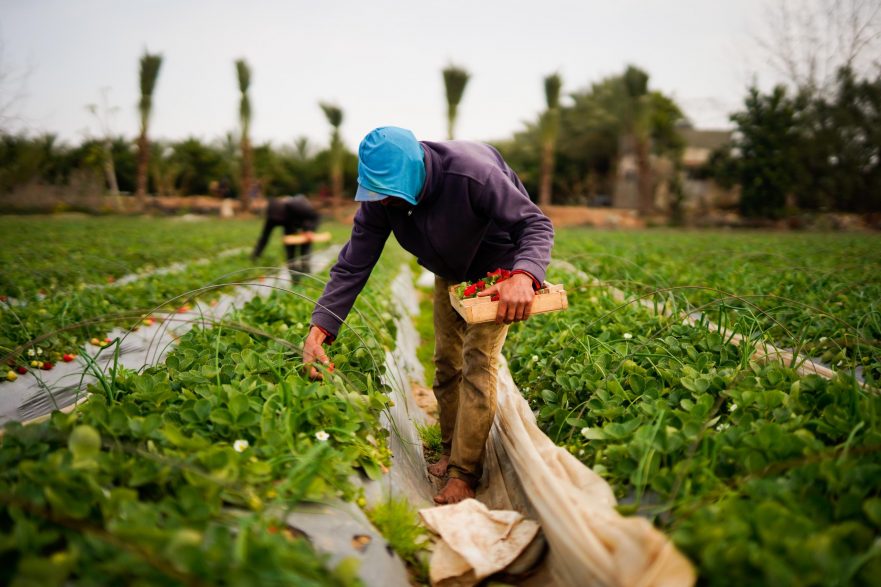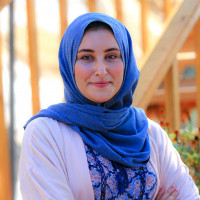In the heart of the Gaza Strip, where generations have tilled the land, Asmaa AbuMezied’s connection to agriculture runs deep. Now based in New York, Asmaa is a Palestinian agricultural expert who carries the weight of her family’s legacy—a legacy rooted in the soil of Palestine.
In a recent episode of our PalCast podcast, Dr. Yousef Aljamal, Tony Groves, and Helena Cobban delved into the critical role of farming in Gaza and the profound impact of genocidal and colonial practices on this vital sector. Asmaa’s insights shed light on the resilience of Palestinian farmers and the urgent need for rebuilding Gaza’s agricultural landscape.
Asmaa’s family has cultivated the land for generations. Their hands have sown seeds, tended to crops, and weathered the storms of conflict. The soil holds memories—the laughter of children, the sweat of hard work, and the tears shed during times of loss. For Asmaa, the land is not merely a means of sustenance; it is a living witness to Palestinian history.
Asmaa shared stories of strawberry farms dotting the Gaza landscape. Despite the odds—limited resources, water scarcity, and political instability—these farms thrive. They symbolize resilience, a refusal to surrender to despair. But they also bear the scars of occupation and siege.
The impact of genocidal practices on Gaza’s agriculture cannot be overstated. From uprooted olive trees to destroyed greenhouses, the land has borne witness to violence. Yet, Palestinian farmers persist. They adapt, innovate, and find hope in the soil they till.
Understanding the profound relationship between Palestinians and their land is essential for rebuilding Gaza. Asmaa emphasized that sustainable agriculture is not just about crops; it’s about dignity, self-reliance, and resilience. In the context of a fragile ceasefire, investing in agriculture becomes an act of defiance against oppression.
Asmaa’s journey from Gaza to New York reflects the diaspora’s longing for home. Her expertise now extends beyond the fields—she advocates for women’s economic empowerment within Gaza’s agricultural value chains. Her work with Oxfam’s Economic Justice Program bridges continents, connecting the struggles of Palestinian women to global efforts for justice.
Asmaa’s vision is clear: a thriving Gaza, where farmers reclaim their land, where strawberries flourish, and where the soil tells stories of resilience. She stands at the intersection of tradition and innovation, advocating for sustainable practices that honor the past while building a brighter future.
As we listen to Asmaa’s words, we recognize that the land of Palestine is more than soil—it is memory, identity, and hope. And as we work towards lasting peace, let us remember that the seeds sown today will yield a harvest of resilience for generations to come.
Asmaa’s journey exemplifies the strength of Palestinian resilience. Her commitment to sustainable agriculture echoes across borders, reminding us that the land is not just a resource—it is a testament to survival.
Listen to the full podcast episode, available on Apple & Spotify, to learn more about agriculture in Gaza and the unwavering spirit of Palestinian farmers.


